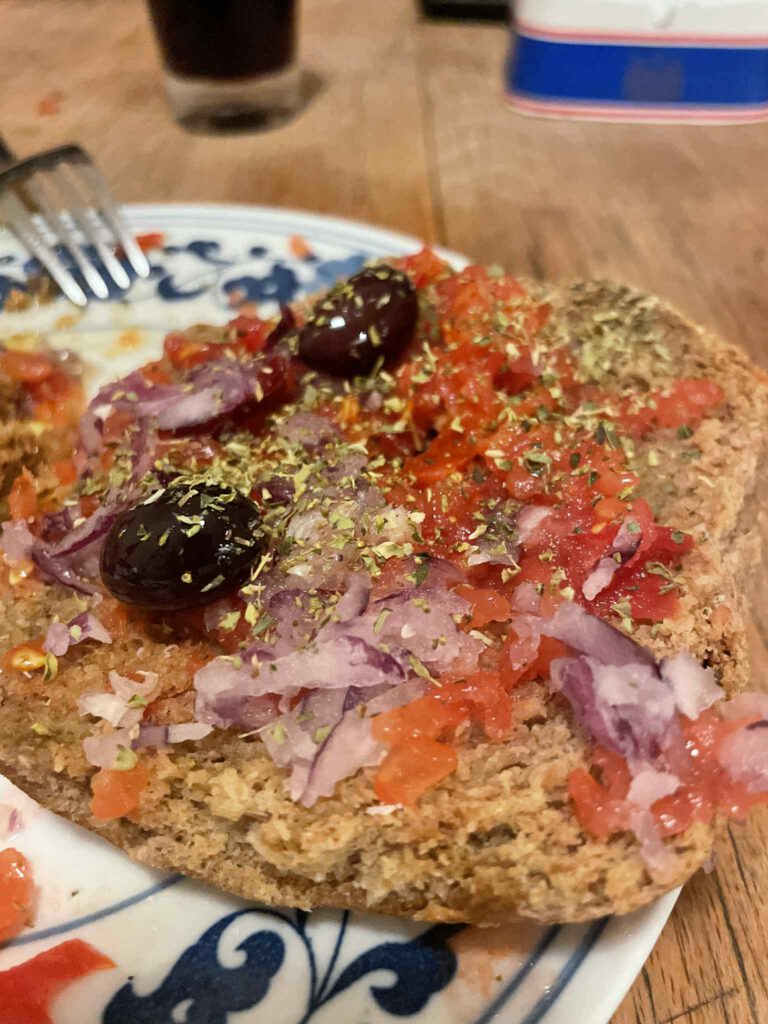
Dakos is a dish that seems to hold the Aegean sun upon it.
At its heart lies the paximadi, the Cretan barley rusk, hard as stone until it’s touched by a little water and a little extra virgin olive oil. That is how you prepare it: within seconds it softens just enough, while keeping its rugged soul. Paximadia for dakos can be found in various shops selling Greek products across Berlin. Soon, I’ll consider whether I can bring the small rusk made in Sparta, Laconia, exceptional in quality and slightly different from the Cretan one.
On top, you crumble ripe tomatoes — the kind that smell of warm fields — and add a generous spoonful of myzithra or feta cheese. A thin stream of extra virgin olive oil , bright, green-gold, with a gentle pepperiness, follows, along with oregano that recalls the stone terraces and hillsides of the Aegean islands and the Peloponnese. A few olives, a pinch of sea salt, and the dish is complete.
Dakos is not cooked; it is assembled with the ease of forming a memory. It is simple, unpretentious, and sincere, proof that some of the most modest things, when touched by good ingredients and the right light, can become almost profound. Good food, in the end, is nothing more than a relatively simple matter that depends on the ingredients you choose.